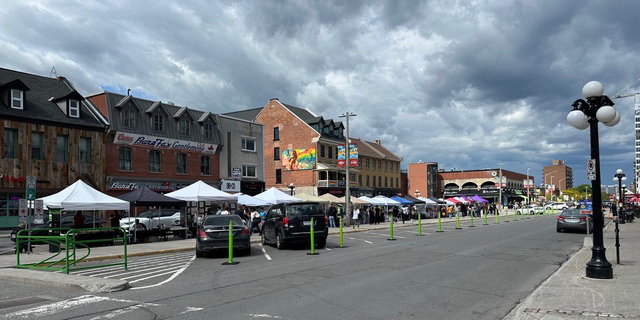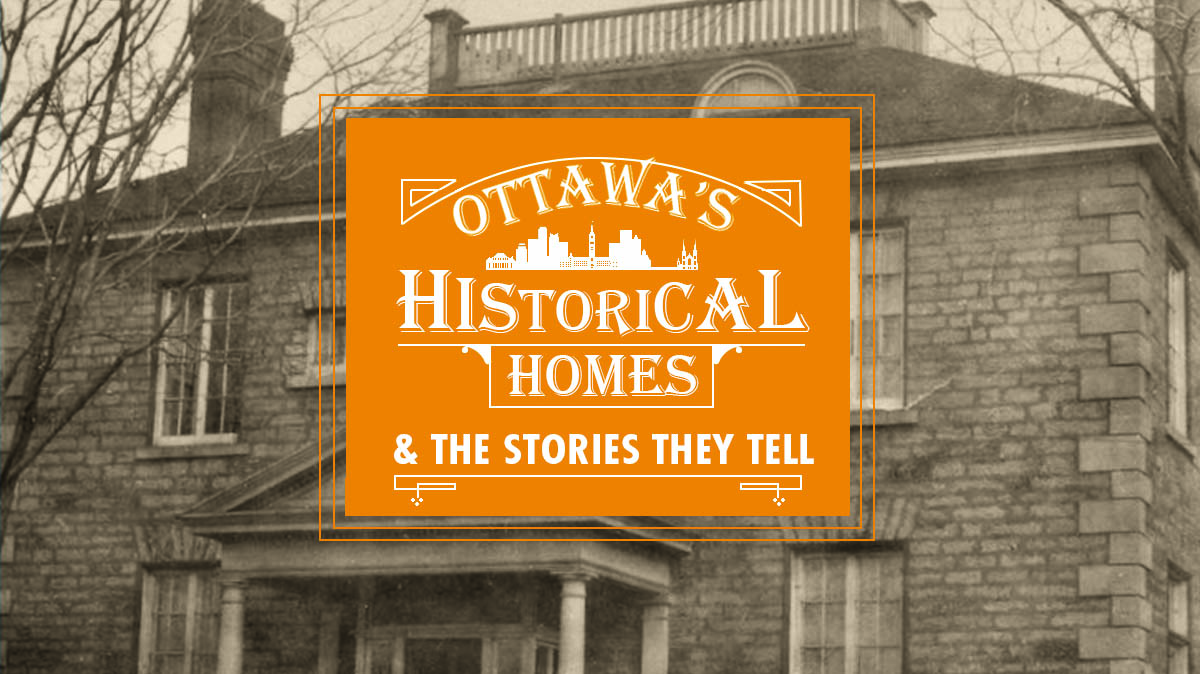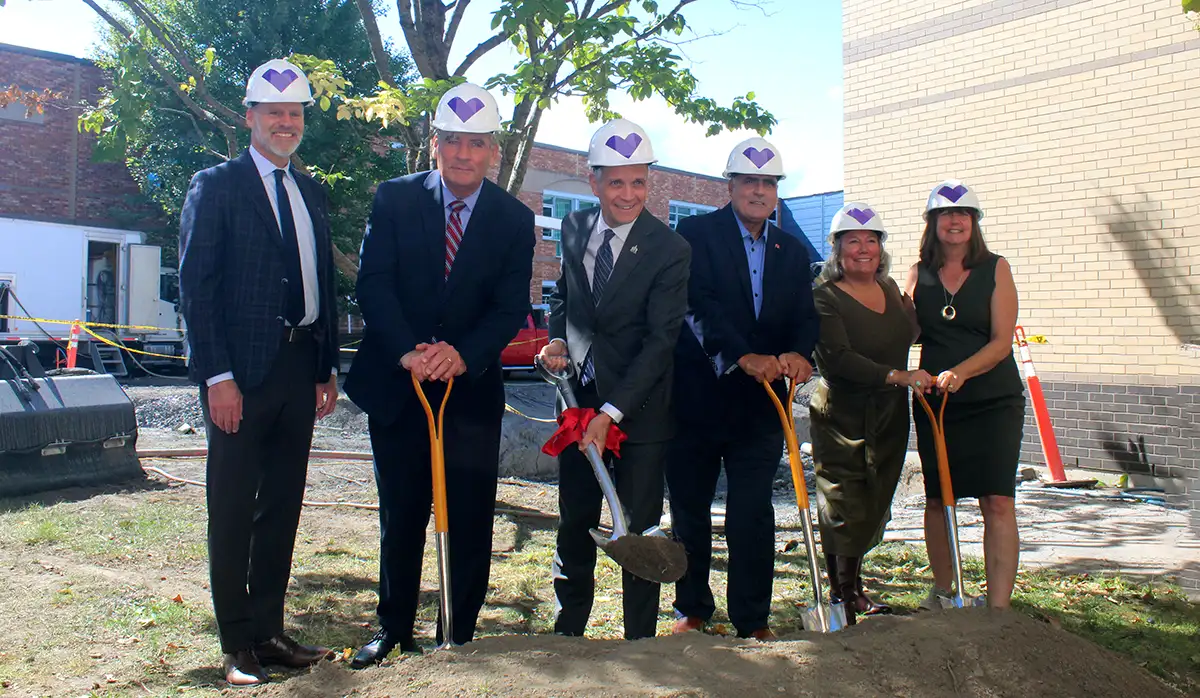
From Vibrant to Vacant: ByWard Business Owner Says Parking is Driving Customers Away
In a May 25 letter to City of Ottawa Councillors and media, ByWard Market business owner Phil Emond renewed his plea for the city to support small businesses rather than continue adding barriers for customers trying to access them. Emond pointed to the increasing number of empty storefronts and the departure of longtime restaurants and retailers, most recently Saslov’s Meats, as evidence of a troubling trend.
Back in 2023, during a meeting with ByWard Market business owners at Clarence Street eatery Bistro Ristoro, Court Curry, Manager of Right of Way, Heritage & Urban Design at the City of Ottawa, said the city envisioned transforming the Market into a vibrant destination to rival Toronto’s Distillery District.
A year later, at the Gordon Harrison Canadian Landscape Gallery on Sussex Street, Ottawa Police Chief Eric Stubbs addressed the same group, highlighting a recently announced $543 million joint investment by the Ontario government and the City of Ottawa aimed at revitalizing the downtown economy and improving public safety. In May 2024, the Ottawa Board of Trade also announced a separate $500 million Capital Investment Fund aimed at enhancing the image of the downtown core.
Despite these encouraging announcements, Emond says little has changed on the ground. The OPS hub that opened on Rideau Street in 2024 was touted positively by the police as a much-needed dedicated meeting space in the ByWard Market, which he says, “…has had no impact so far.”
Emond also voiced his disappointment with the lack of vision in the ByWard Market District Authority (BMDA), which replaced the previous Business Improvement Area (BIA) in 2024. While Zach Dayler, executive director of Ottawa Markets, assured merchants that the new body would be results-focused, Emond says he has seen little evidence of that. Sadly, aside from a misguided miniature synthetic rink on William Street with waivers as long as the street itself, and the occasional flea market, there appears to be little change.
Recurring frustrations voiced by business owners include a shortage of parking and aggressive enforcement by by-law officers. “Bylaws are ticketing non-stop to the point where our clients are feeling harassed,” said Emond.
Emond’s letter came ahead of a move intended to increase turnover in high-demand parking areas. The city has since voted to extend the hours during which paid on-street parking is required in the ByWard Market and other busy districts. The change was reviewed by the Public Works and Infrastructure Committee and supported by environmentalists, who provided evidence that increasing on-street parking increases the availability of spots, thereby alleviating the need for drivers to circle for an open spot.
At a May 22 Public Works and Infrastructure Committee meeting, prominent Ottawa restaurateur Stephen Beckta cautioned that extending paid parking later into the night could have serious unintended consequences. “It’s not practical to move your car mid-meal,” Beckta told the committee. He urged the city to consider either extending the parking window to three hours or adopting a mobile app that allows diners to extend their time from their table, without requiring them to move their cars, as is currently the case. Without such improvements, he warned, downtown Ottawa risks a “hollowing out” as diners choose more accessible neighbourhoods.
Emond echoed Beckta’s concerns. “Retailers and restaurateurs in the ByWard Market are slowly dying in this economy,” he said.
Councillor Riley Brockington also acknowledged the urgent need for action. At Council on May 28, he tabled a motion—ultimately defeated—that would have exempted parts of the ByWard Market from the extended paid parking hours. “This is not the time,” he argued, adding that watching the Market today is like “watching an elderly relative slowly die.” Councillor Stephanie Plante was the only other member of Council to support Brockington’s motion.
At the May 22 committee meeting, a motion was approved to replace the existing pay-and-display kiosks with a mobile app, like those currently available in many other Canadian cities. However, implementation is likely years away. Councillor Stephanie Plante also confirmed during City Council debate on May 28 that the city has initiated a study to explore the creation of an underground parking garage in the Market.
That’s welcome news to Emond, who emphasized the urgent need for more space. In a recent call with Mayor Mark Sutcliffe, Emond recalled the mayor telling him that Lansdowne Park “would not survive” without its existing underground parking.
Emond stated, “Regretfully, current retailers will likely never see the time when we benefit from this, although I strongly encourage you to proceed.”
In closing his letter, Emond urged the city to “rethink extending paid parking beyond 5:30 p.m.” He warned that if Ottawa goes ahead with extending paid parking until 9 p.m. and adding Sunday enforcement, “that will simply put an end to us all.”
While Emond believes that revenue from on-street parking ends up in the city’s general coffers, the Municipal Act prohibits that. Funds collected must be used for parking-related initiatives, such as maintaining infrastructure, EV charging stations, bike parking, or developing new facilities, like an underground garage.
The challenges in the ByWard Market go beyond parking. The area is home to four shelters, two supervised drug injection sites, and over 2,000 homeless individuals and drug users—all concentrated in a small footprint. These complex social issues continue to weigh heavily on business owners.
As the historic heart of Canada’s capital prepares to celebrate its 200th anniversary in 2027, many fear for its future. Without meaningful action, loyal customers may go elsewhere—and business owners like Phil Emond may become just the latest to close their doors for good.
Photo: Parking on York Street is cordoned off, unavailable for paying customers. (Photo: Phil Emond)









